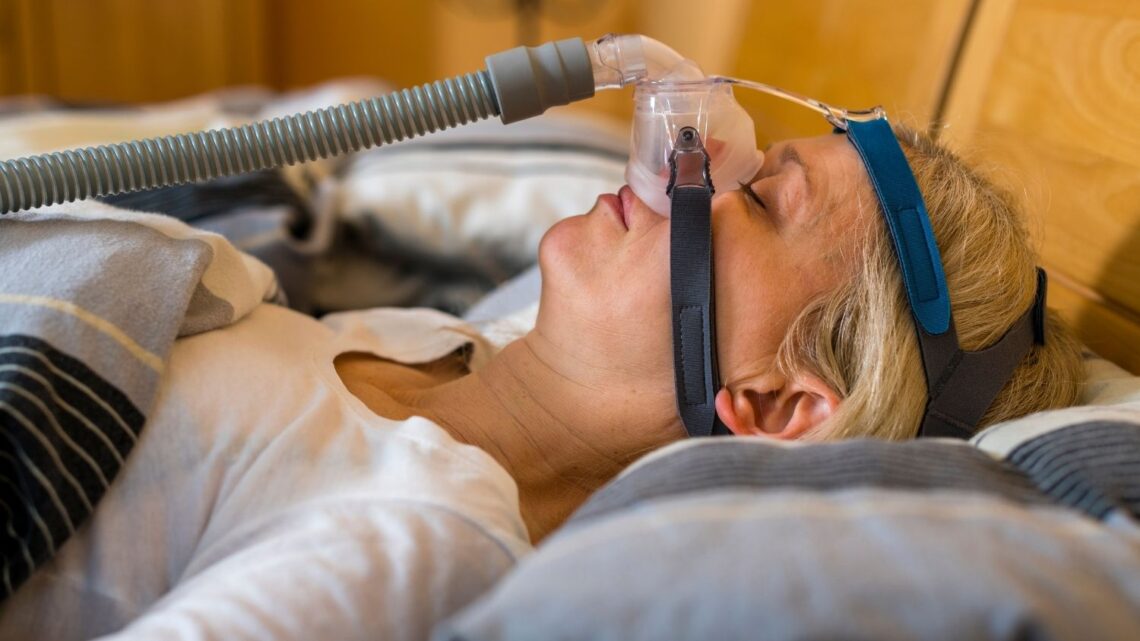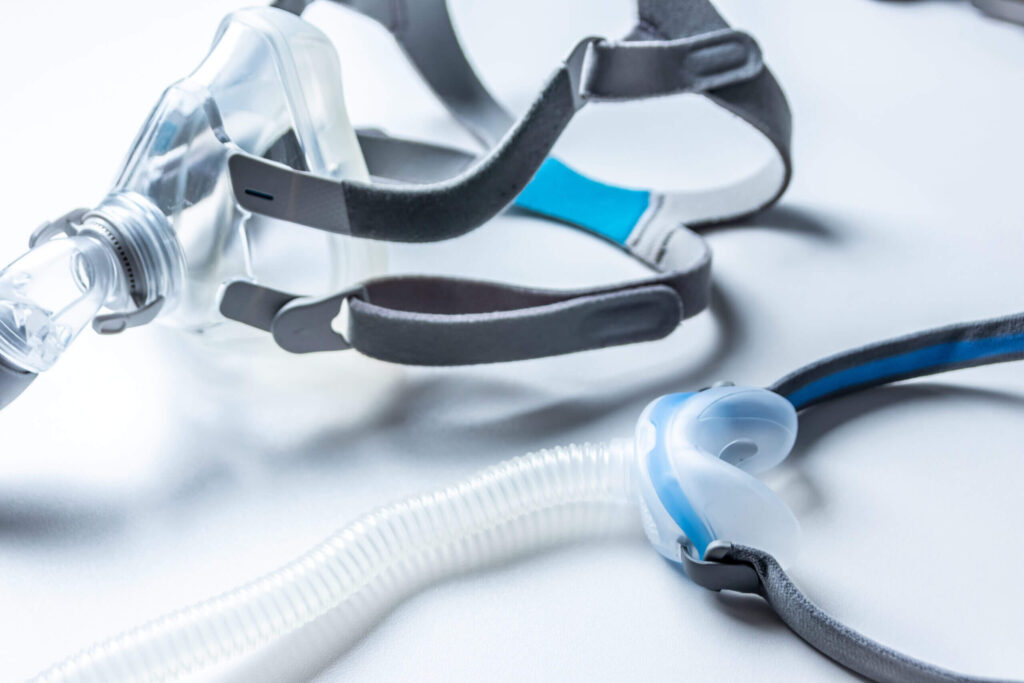
CPAP (Continuous Positive Airway Pressure) machines have transformed the way people with sleep apnea manage their condition. These devices provide continuous airflow through a mask, helping to keep the airway open during sleep. CPAP therapy is the most effective treatment for obstructive sleep apnea, improving sleep quality and overall health. However, like any machine, CPAP devices may encounter occasional issues. In this article, we’ll explore common CPAP machine problems and provide practical solutions to help you get the most out of your therapy.
What is Sleep Apnea and How CPAP Machines Help
Sleep apnea is a disorder where a person’s breathing repeatedly stops and starts during sleep. This interruption in breathing can result in poor sleep quality and cause a range of health problems. There are three primary types of sleep apnea:
- Obstructive Sleep Apnea (OSA): The most common form, caused by a blockage of the upper airway, typically when the throat muscles relax during sleep.
- Central Sleep Apnea: Occurs when the brain fails to send the proper signals to the muscles that control breathing.
- Complex Sleep Apnea: A combination of obstructive and central sleep apnea.
CPAP machines are prescribed for people with obstructive sleep apnea (OSA). The machine works by delivering a constant stream of air through a mask, which keeps the airway open and prevents it from collapsing. By eliminating interruptions in breathing, CPAP machines allow individuals to sleep more deeply and enjoy the restorative benefits of a full night’s rest.
See more: Castle Hill Hand Therapy and OT Services for Children with Developmental Needs
Types of CPAP Machines
There are different types of CPAP machines, each designed to meet specific needs. Below are the most common types:
- Standard CPAP (Continuous Positive Airway Pressure):
- How it Works: Provides a continuous, fixed air pressure to keep the airway open.
- Benefits: Simple, effective, and the most widely used for OSA treatment.
- Limitations: Fixed pressure may not accommodate fluctuations in breathing during the night.
- Auto-CPAP (Auto Adjusting CPAP):
- How it Works: Automatically adjusts the air pressure based on changes in your breathing throughout the night.
- Benefits: Provides a personalized experience, offering comfort by adjusting to your needs.
- Limitations: More expensive than standard CPAP machines.
- BiPAP (Bilevel Positive Airway Pressure):
- How it Works: Offers two levels of pressure—higher pressure for inhalation and lower pressure for exhalation.
- Benefits: Ideal for people with complex sleep apnea or other respiratory conditions.
- Limitations: Typically more expensive and requires specialized settings.
How to Choose the Right CPAP Machine
Choosing the right CPAP machine involves several factors. Here are some tips to help you select the best device for your needs:
- Comfort: Look for machines that offer adjustable pressure settings and a variety of mask options. Consider whether you need a heated humidifier for added comfort.
- Noise Level: If you or your partner are sensitive to noise, select a quieter CPAP machine. Many newer models are designed to be ultra-quiet.
- Portability: For those who travel frequently, a compact and lightweight machine with a carrying case is essential.
- Price: While standard CPAP machines are more affordable, Auto-CPAP and BiPAP models come with higher price tags due to their additional features.
Consult with your healthcare provider to ensure the machine meets your specific requirements.
CPAP Machine Setup and Usage
Setting up your CPAP machine properly is crucial for effective therapy. Here’s a simple guide for setting up and using the device:

- Unbox and Assemble: Connect the CPAP machine to the power supply and attach the tubing to the machine and mask. If your machine has a humidifier, connect it as well.
- Adjust Pressure Settings: For standard CPAP machines, your doctor will set the prescribed pressure. For Auto-CPAP machines, the pressure will adjust automatically based on your breathing.
- Fit the Mask: Choose a mask that fits comfortably and securely. Masks come in different styles, such as nasal masks, nasal pillows, and full-face masks.
- Turn On the Machine: Once everything is connected, turn the machine on before going to bed. Make sure to use it every night for optimal results.
Troubleshooting Tips:
- Air Leaks: If air leaks occur, ensure the mask fits snugly and that the tubing is securely attached. Try adjusting the straps for a better fit.
- Dry Mouth: Consider using a heated humidifier to add moisture to the air or switch to a full-face mask to prevent mouth breathing.
- Noisy Machine: Place the CPAP machine on a stable surface and ensure the air filter is clean to minimize noise.
CPAP Machine Accessories and Maintenance
To ensure that your CPAP machine continues to perform effectively, regular maintenance is required. Essential accessories and maintenance tips include:
- Masks: Clean your mask daily with warm, soapy water to avoid bacteria buildup. Replace it every 6 to 12 months for optimal performance.
- Tubing: Clean the tubing weekly with mild soap and water to prevent mold and bacteria buildup. Replace the tubing every 6 to 12 months.
- Filters: Replace the air filters every month to ensure clean airflow.
- Humidifiers: If your CPAP includes a humidifier, clean the water chamber weekly to prevent bacterial growth.
Proper maintenance ensures the longevity of your CPAP machine and keeps the air clean and safe for breathing.
Benefits of Using a CPAP Machine
Using a CPAP machine offers a variety of health benefits, including:
- Improved Sleep Quality: By preventing breathing interruptions, CPAP machines allow you to enjoy more restful and uninterrupted sleep.
- Reduced Risk of Heart Disease: Sleep apnea is linked to an increased risk of heart disease, stroke, and high blood pressure. CPAP therapy helps mitigate these risks by improving oxygen levels during sleep.
- Increased Energy: With better sleep quality, users often experience more energy and increased productivity throughout the day.
- Improved Cognitive Function: Better sleep leads to better memory, concentration, and decision-making abilities.
- Reduced Snoring: CPAP therapy helps eliminate snoring, which can improve your relationship with your partner and enhance your sleep environment.
Common CPAP Machine Problems and How to Solve Them
While CPAP machines are highly effective, users may experience a few common issues. Here’s how to resolve them:
- Air Leaks: If you notice air leaking from your mask, make sure the mask is properly sealed and check for any cracks or tears in the tubing.
- Dry Mouth: This can happen if you breathe through your mouth while using a nasal mask. Use a heated humidifier or switch to a full-face mask to prevent this.
- Discomfort: If the mask feels uncomfortable, try adjusting the straps or consider a different type of mask. Cushion pads and liners can also provide additional comfort.
Cost of CPAP Machines and Insurance Coverage
The cost of CPAP machines varies depending on the type and features:
- Standard CPAP Machines: Range from $200 to $800.
- Auto-CPAP Machines: Typically range from $500 to $1,500.
- BiPAP Machines: Can cost upwards of $1,000.
Insurance Coverage: Most insurance plans cover CPAP machines if they are medically prescribed. It’s important to check with your insurance provider to understand what’s covered and what costs you might need to pay out of pocket.
Conclusion
CPAP machines are essential tools in managing sleep apnea, offering numerous benefits that extend far beyond just improving sleep quality. By ensuring an open airway, CPAP therapy reduces the risk of heart disease, increases daytime energy, and enhances overall well-being. With regular maintenance and the right accessories, CPAP machines can significantly improve your health, allowing you to lead a more active and fulfilling life. If you’re experiencing issues with your CPAP machine, follow the troubleshooting tips in this article or consult your healthcare provider for further guidance.